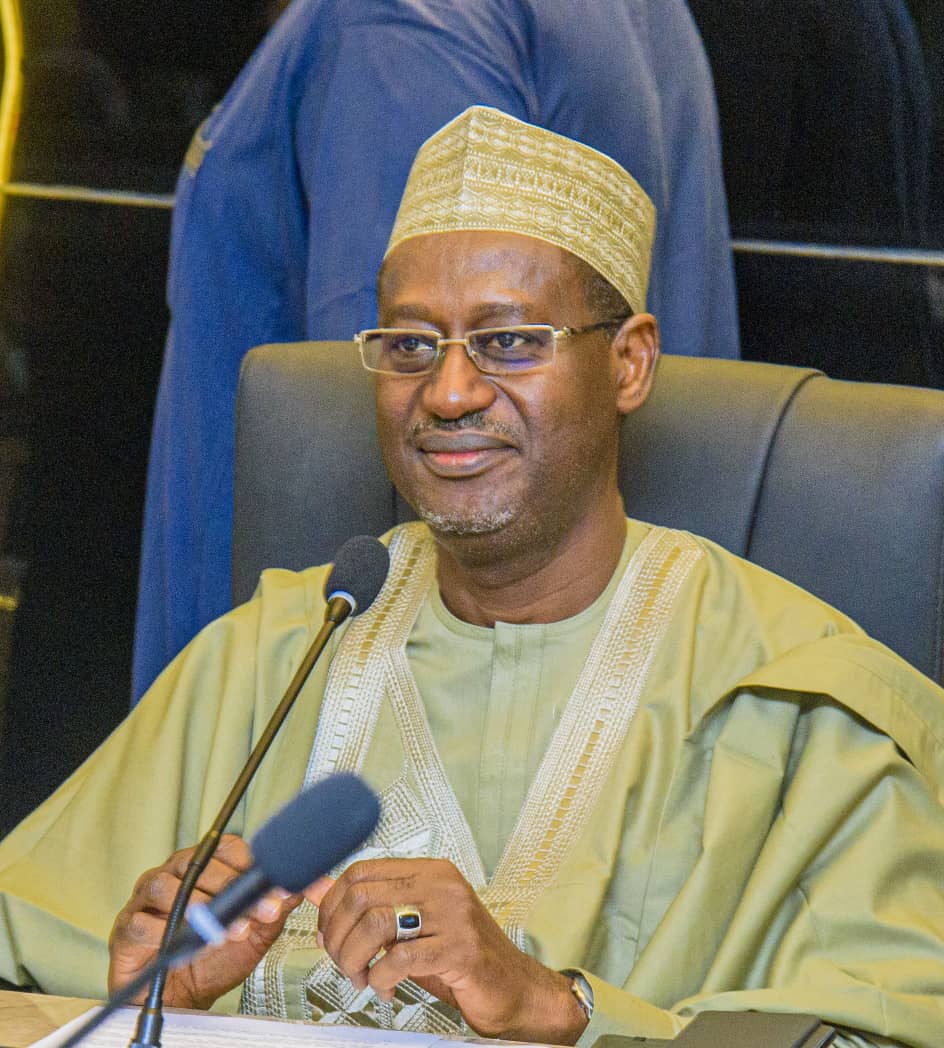Arc. Ahmed Musa Dangiwa, the Minister of Housing and Urban Development, has revealed the formation of a team comprised of experts and stakeholders in housing reform.
This team aims to enhance the effectiveness of housing agencies under the ministry’s supervision to achieve the goal of providing affordable housing for Nigerians.
The minister shared this information during a meeting with a delegation from the Housing Development Advocacy Network (HDAN), led by Mr. Ugochukwu Obiora Chime, at the ministry’s headquarters in Abuja. He clarified that the reform team would include representatives from HDAN, agencies, professional bodies, and academia.
They would develop a robust framework for the reform of the housing sector by thoroughly reviewing relevant laws and facilitating necessary legislative amendments, such as the Land Use Act, 1978; the National Housing Fund (NHF) Act, 1992; the Federal Mortgage Bank of Nigeria (FMBN) Establishment Act, 1993; and the Federal Housing Authority (FHA) Act, 1973, among others.
“The team will be tasked with streamlining all previous reform blueprints and whitepapers for the agencies, and outlining areas requiring reform, with a focus on enhancing efficiency, transparency, and accountability,” he further explained.
While recalling a special agenda-setting dinner that was organized in his honour shortly upon assumption of office, Dangiwa was delighted to acquaint the delegation with the prioritization of some key concerns that were raised by the stakeholders at the event.
Dangiwa further added that a ministry taskforce has been set up, which is actively working with the National Population Commission to design survey instruments that would address housing-related questions during the upcoming population and housing census exercise. This would, in turn, establish the actual housing deficit in the nation.
He also noted that work was in progress to bring reforms that would ensure easy access to land. And to this effect, he informed that a land reform committee comprising state governments, traditional rulers, relevant agencies, professional bodies, and the academia would be launched to push for the amendment of the outdated Land Use Act of 1978.
“We invited and met with the Presidential Technical Committee on Land Reforms; we now have access to the comprehensive work they have done over the past 14 years on Land Reforms in our country.
“Immediately after the meeting, we set up an internal ministerial committee to review and recommend for inclusion in our land reforms strategy.
“Relevant parts of their recommendations will be the establishment of the National Land Commission to spell out the guidelines and regulations for operationalizing the Land Use Act, 1978,” he added.
He highlighted more components of the reform agenda, such as the creation of a framework for the establishment of a National Social Housing Fund (NSHF) to deliver decent accommodation to all Nigerians; the work in progress to boost building materials’ manufacturing in the country that would ensure economic growth, create jobs, and reduce dependency on imports; slum/urban upgrading for Nigerians who cannot afford the FMBN mortgages; as well as supporting the efforts to meet the need of affordable housing for Nigerians, who can afford to own their homes through mortgages from the FMBN, FHA or commercial mortgages.
He also reviewed the plans to deliver 34,500 units of multi-level flats to cater to low-medium income earners, terrace and detached bungalows, and also duplexes for the high-income earners under Phase 1 of the ‘Renewed Hope’ Cities in each of the six geo-political zones of the country and the FCT. There is also the plan to deliver 500 housing units of affordable 1, 2- and 3-bedroom bungalows per site in each of the remaining thirty states under the ‘Renewed Hope’ Estates.
“Sponsors will include the Federal Ministry of Housing and Urban Development’s budgetary allocation, the Federal Mortgage Bank of Nigeria (FMBN), and through Public-Private Partnerships with reputable developers. Ownership options include mortgage loans, rent-to-own, and outright purchase,” he specified.
Furthermore, Dangiwa disclosed an ongoing comprehensive plan to ensure that all units under the National Housing Programme were completed:
“We have set up a ministerial committee to review and rescope the contracts of the abandoned sites as appropriate.
“We will also assess both the technical and financial capacity of the contractors to ensure that we proceed with only those that are capable.
“Our goal at the end is to ensure that the government gets value for the investment in the National Housing Programme and that we also learn the lessons from its challenges.”
Earlier in his remarks, the leader of the HDAN delegation, Ugochukwu Obiora Chime, acknowledged that the ministry serves as the blueprint that would bring about massive socio-economic development to the country, given its potential as the greatest engine room for employment generation.
He, however, noted that more work was needed to institutionalize such a turnaround in the perception of shelter, not just as a means of providing homes for people but also as a means of engendering the massive socio-economic growth as well as multiplier effect in the local economy, employing the associated activities involved in providing the shelter.
The delegation appealed to the honourable minister to wade into issues surrounding the pricing of land Certificate of Occupancy (C-of-O), in addition to setting up a committee that would look into the outstanding housing bills at the National Assembly.
They further expressed confidence in the leadership of the honourable minister in proffering and implementing innovative solutions to the problem of housing deficits in Nigeria.
Source: Voice of Nigeria

































